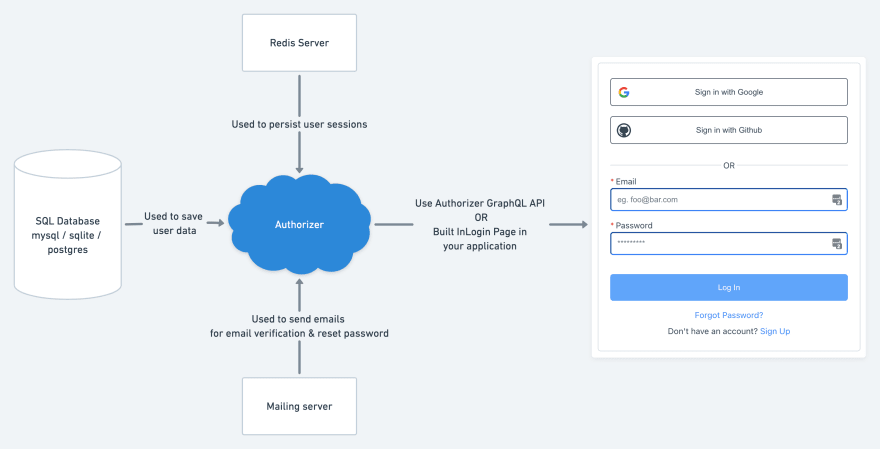26
Introducing Authorizer.dev

Why you should consider using Authorizer ❓
✅ It is open source and free to use 😅
✅ Supports role based authentication & Authorization
✅ Supports secure session management with HTTP only Cookies & JWT tokens
✅ Supports multiple auth recipies
✅ Supports database of your choice
✅ Supports multiple integrations and implementations
✅ Comes with Builtin Login Solution
✅ Comes with Multiple Deployment Options
✅ Supports custom scripting for advanced use cases like modifying JWT token payload
Motivation behind Authorizer
Also, don't forget to share the love for authorizer by adding a star to Github projects!
26
